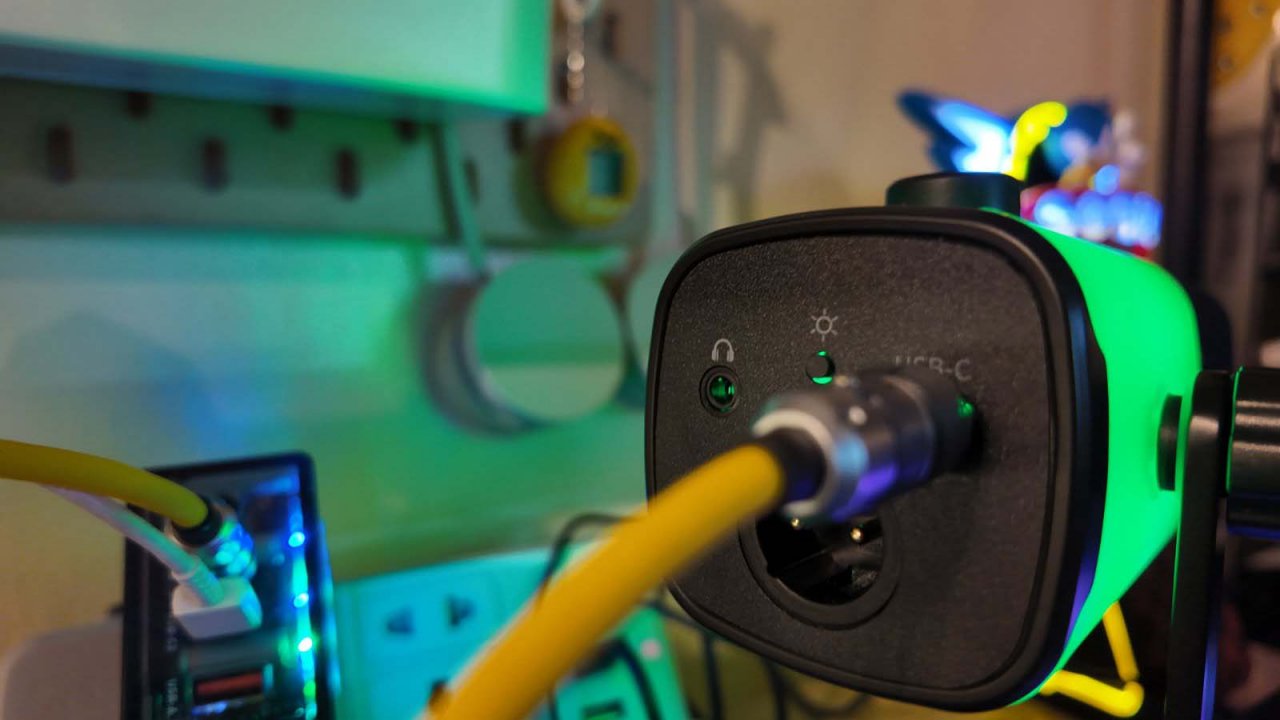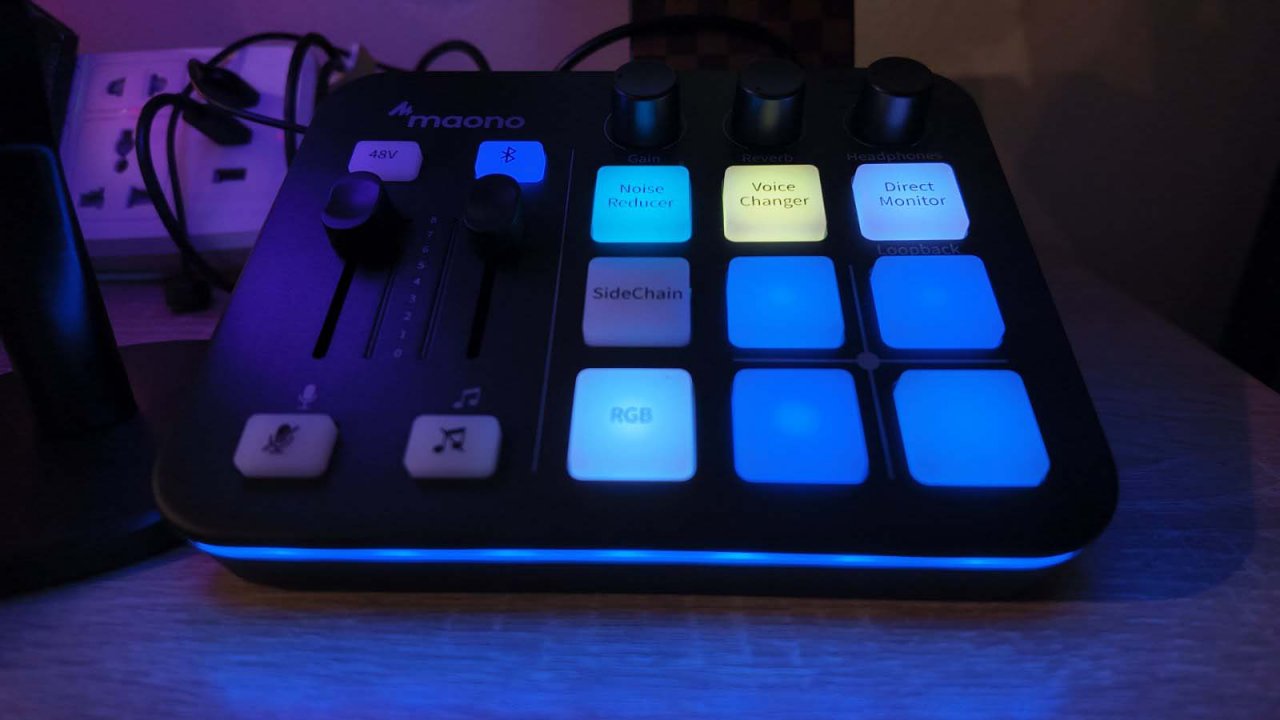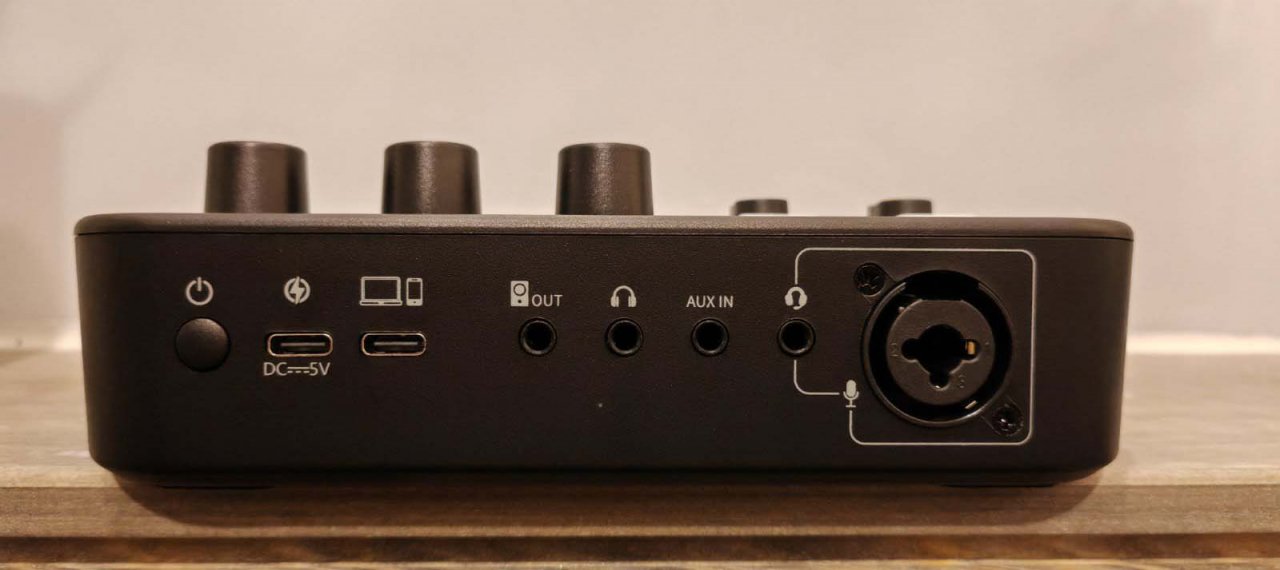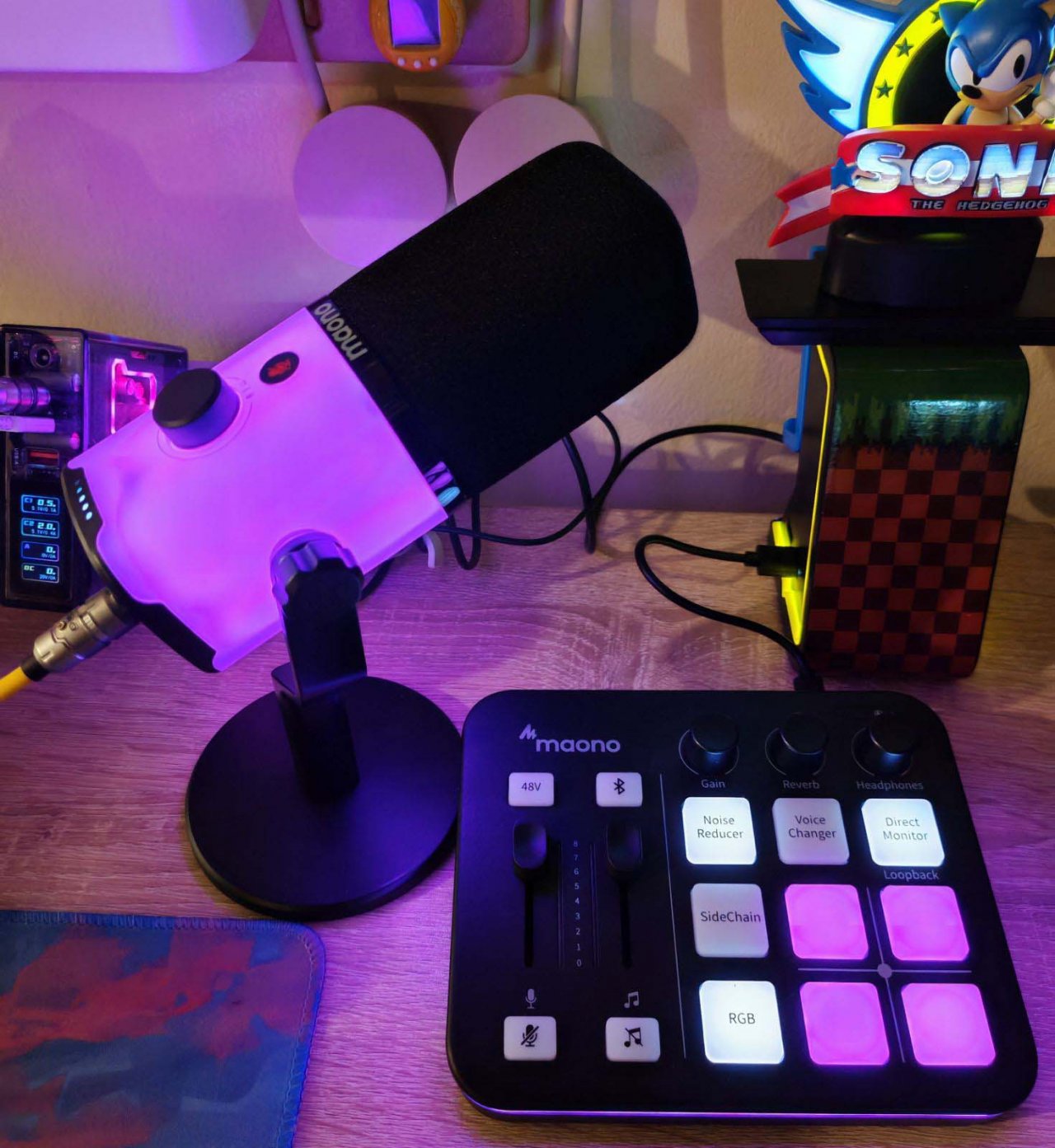- Handy starter bundle that’s a simple plug-and-play affair
- Easy to use and very portable
- Not the most important necessity to have if you’re not a streamer
Today’s peripherals have made it easier than ever to create content based solely on gaming, and with its steadily growing lineup of gear for newbies and audiophiles alike, Maono appears to have set its sights on dominating a good chunk of that market.
The Maono PD100X and G1 Neo bundle are easy to use and truly beginner-friendly for anyone who’s looking to be a content creator in any capacity, coupled with the loud-and-proud RGB lighting that proves Maono knows its audience all too well. But do these truly add value to a gamer’s everyday kit?
Look and feel of the Maono mic and mixer
Much like its predecessors, the Maono PD100X waves the flag of gamer geekdom with its unapologetic RGB lighting. This time around, Maono has chosen to chuck subtlety out the window, opting instead to coat the whole body of the USB/XLR dynamic microphone with frosted RGB lights you can toggle via a tiny button at the bottom. The rest of the mic is held together by a built-in windfoam as opposed to the detachable one from the PD200X, which is a nice touch given how easily the windfoam often came off on the older model.

The mute option, however, has been replaced with a touch button that’s prone to accidental touches, in my experience, which is why I still prefer the tactical feel of the actual button in the previous models. The rest of the controls are still as simple as they should be, with the 2-in-1 knob that controls both the mic gain and headphone volume, as well as the USB-C port underneath the mic along with the handy 3.5mm headphone jack.
I also really appreciated the fact that the PD100X now comes attached with its own stand that you can either use as a desktop accessory or mount onto a boom arm depending on your setup. Due to space constraints, I often prefer having my mics mounted on a boom arm, but I also appreciate the flexibility of using my mic propped up on a table when the need arises.
As for the G1 Neo audio mixer, it’s an adorable thingamajig that offers all the basic needs a content creator might have in a no-nonsense package. The buttons are nice and large and each one tells you exactly what it does, plus volume sliders and gain/reverb knobs and, of course, all the RGB lights a gamer could ever want. It may not have its own battery pack, but its portable size and simple USB-C connectivity still make it convenient to lug around on the go.

The size of the buttons makes it feel a little bit like a toy, to be honest, but I suppose that’s a design choice to prevent accidentally muting yourself during a match or pressing the Voice Changer when you’re narrating a podcast documentary. The grips underneath the mixer are nice and stable too, and while the buttons aren’t the most comfortable to press in my opinion, the sliders are nice and smooth, and they glide along with a satisfying feel.
Maono PD100X mic and G1 Neo audio mixer performance
Now, a mic is a mic, and Maono is known for providing value-for-money performance with its products. Its lineup of microphones proves that you don’t really need to break the bank to get professional-sounding audio quality, and its Type-C connectivity makes it painless when you’re using the mic on your mobile device.
The same is true for the PD100X, and I love how it’s once again back to having you position your mouth on top of the mic rather than in front like in the Maono DM30RGB. It’s light enough to carry with you but also hefty enough to keep it stable on your desk, and you don’t need any intricate setup or installation hoops to go through just to get it up and running.
Still, I couldn’t get the Maono Link mobile app to work with my phone, despite switching to different devices and cables. The program works perfectly on my laptop though, which is odd given how the phones could detect the mic but the app simply wouldn’t start.
For the G1 Neo audio mixer, however, not everyone might be privy to how these things work, so let me walk you through the ports on the back for a little bit.

Essentially, the mixer lets you tinker around with your voice, music, and audio output with the simple touch of a button. With the G1 Neo, you can plug in your XLR mic, or you can choose to use headphones with a built-in mic as your audio input. There’s another dedicated port for headphones alone without the mic if you want to use both separately. The AUX IN port is for plugging in an external mobile phone source for background music, which you can also connect via Bluetooth on the mixer. Additionally, the audio output can be connected via a speaker.
As for streaming itself, you can use the USB-C port to connect your phone, and finally, the power source is also via a separate USB-C port. With all these, you can stream on your phone or on your PC, and use another phone as an input source for background music.
The mixer itself has four preset buttons you can customise to add personalised tracks – you can program a laugh track, for instance, or record your own canned voice prompt or intro and play it with a tap of a button. The other buttons on the mixer let you reduce background noise, change your voice, monitor your own mic input, and control the RGB lighting.
What I love is that you don’t have to be a rocket scientist to figure out how to use these buttons either, as the handy instruction manual tells you all you need to know in a jiffy. What’s mindblowing here is that you can just use all these effects with no extra software needed – just pick your streaming platform, then plug, play, and podcast (or stream). That’s it.
What’s the appeal?
Now, you might be thinking that you won’t really have much use for an audio mixer if you’re not looking to create content, do live streams, or record podcasts – and you’re right. For me, as a non-streamer, an audio mixer isn’t a necessity – it’s not going to make voice chat easier or more convenient for me during multiplayer matches, and in fact, it will only take up the limited real estate around my desk. While a mic is definitely a must, a mixer is not.

Still, having it around offers the nifty option of doing quick voiceovers or maybe creating content even privately or for friends, which, given how easy it is to use the G1 Neo, is certainly welcome. I particularly love how the SideChain option automatically lowers the volume of the background music each time I talk, although I do have a bit of an issue with the Direct Monitor and Loopback options. They let me reduce unwanted echoes and still hear myself speak, but the monitoring definitely leaves room for improvement given the odd reverb I could still hear.
The stars of the show, however, are the RGB lights, which – given my easily-attracted-by-lights nature – is already a huge plus. Of course, now that the PD100X wears its RGB lighting throughout its whole body, it might just be too loud for some people, and if you’re not looking to blind everyone around you with all the dazzling colours, opting for the more subtle look of the PD400X might be your best bet.
If all that sounds like it’s exactly your cup of tea though, the Maono PD100X and G1 Neo bundle will be available for purchase from the official website beginning June 1st at $119.99 or your local equivalent.
